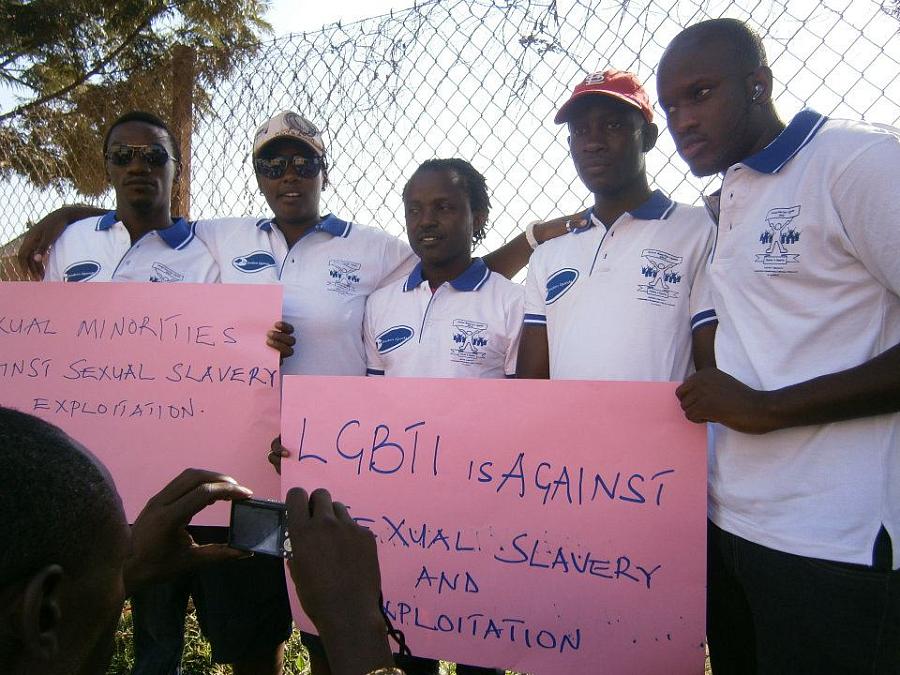Health Challenges of HIV testing among LGBTI in Uganda

A secret location in Kampala, Uganda has seen LGBT people attend voluntary HIV counselling and testing (VCT).
The session, which was organised by an MSM [men who have sex with men] group in Uganda, saw more than half of the 52 people invited risk their personal safety in order to access this vital health service.
This was no mean achievement for LGBT in Uganda, considering that they are persecuted and that this is a very homophobic country. Ugandan LGBT are not allowed to freely associate and currently there is a bill in parliament that seeks to criminalise activities of LGBT and their associates.
A leading LGBT health coordinator, who asked their organization not to be named and preferred to be known by the pseudo name of Valentino, told this reporter that his organization carries out VCT for LGBT every two months because mainstream health facilities are ‘hostile’ to LGBT.
Explaining the challenges LGBT face in Uganda he said: “We need to facilitate our members to come and attend the VCT sessions. But we are also in short supply of health personnel to carry out VCT services for LGBT. They [doctors and nurses] are in most cases not willing to attend to MSM. Some of them carry to their jobs human attitudes, religious biases and cultural prejudices when asked to attend to MSM.”
He added that he hoped that at least doctors and nurses should be guided by their ethics and professional codes of conduct while doing their jobs. This includes the Hippocratic oath, a pledge taken by physicians and other healthcare professionals swearing to practice medicine ethically.
Valentino noted that in the past MSM have been turned away from VCT counselling conducted by doctors and nurses in Uganda. Many LGBT feel they are not safe and their sero-status test results can be publicised because of their sexual orientations.
“The environment where we work is so threatening, intimidating, and is full of interruptions and disruptions. Why can’t people leave us alone? For instance the Most At Risk Population Initiative (MARPI), a unit dealing with STI at Mulago hospital, is supposed to help us. But they drag their heels when we call upon them to assist us.
“When we engage other service providers and ask our members to go there and get services, they [health workers] start saying ‘but you are too handsome to be behaving like that’. We really need community friendly services, not people asking us questions about what we are.”
He called for the international community to push for MSM issues to be incorporated in the health policy of Uganda and other developing countries as a precondition for providing additional funding to key sectors such as health.
“These people get money from donors and the Global Fund and tell donors ‘we are providing health services to all people irrespective of their sexual orientations’. But those are lies. We do not see those services as LGBT. We are waiting and have been waiting for long.”
Valentino says people should stop “burying their heads in the sand” and presume that the LGBT community does not exist in Uganda.
“MSM exist, we are there and we are real. We are not fake. We are not…street thieves or way wards. We are real and decent people who are interested in living our lives, just like anybody else does.”
